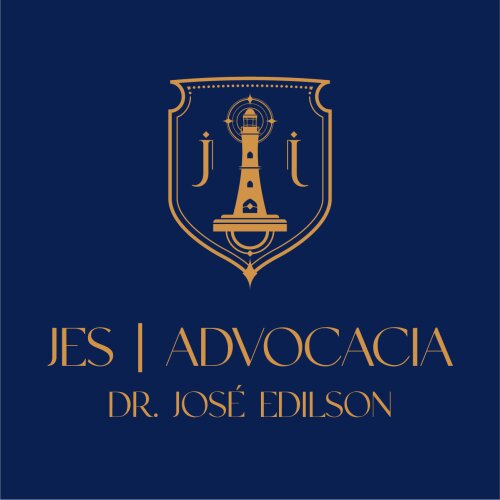Best Family Lawyers in Brazil
Share your needs with us, get contacted by law firms.
Free. Takes 2 min.
Free Guide to Hiring a Family Lawyer
Or refine your search by selecting a city:
List of the best lawyers in Brazil
About Family Law in Brazil
Family law in Brazil encompasses a wide range of legal issues related to family relationships. It covers marriage, civil unions, divorce, child custody and support, adoption, and domestic violence, among others. The Brazilian legal system is based on codified laws, and family law is largely governed by the Civil Code of 2002. In Brazil, family is considered a fundamental social institution, and the laws aim to protect the rights and duties of all family members to ensure harmony and justice within familial relationships.
Why You May Need a Lawyer
There are several common situations where individuals may require legal assistance in family law in Brazil:
- Divorce: Legal support can help navigate the division of assets, child custody arrangements, and spousal support.
- Child Custody and Support: Lawyers can assist in establishing or modifying custody arrangements and calculating appropriate child support amounts.
- Adoption: Legal guidance ensures compliance with adoption procedures and regulations.
- Domestic Violence: Victims may require legal advice on protection measures and legal proceedings against perpetrators.
- Legal Recognition of Same-Sex Relationships: Couples may need assistance with the recognition of civil unions and related rights.
- Inheritance Disputes: Family lawyers can provide guidance in resolving conflicts over estates and inheritance.
Local Laws Overview
Key aspects of Brazilian family law include:
- Marriage and Civil Unions: The law recognizes both traditional marriages and stable unions (uniões estáveis) between couples, regardless of gender. Marriages can be dissolved through divorce, which can be mutual or contested.
- Property Regime: Couples can choose from different property regimes, such as community property, separate property, and participatory regime.
- Child Custody: Generally favors joint custody, emphasizing the best interests of the child.
- Adoption: Must follow a strict judicial process to ensure the child's welfare is prioritized.
- Domestic Violence: Protected under the Maria da Penha Law, which provides strong measures for prevention and punishment.
Frequently Asked Questions
What are the legal requirements for marriage in Brazil?
Couples must be at least 18 years old, or have parental consent if between 16 and 18. Both civil and religious ceremonies are recognized, but civil registration is necessary to formalize the marriage legally.
How does divorce work in Brazil?
Divorce can be amicable or contested. Amicable divorce involves both parties agreeing on terms, whereas contested divorce requires legal intervention due to disputes, often over assets or custody. Divorces can be initiated via a notary or judicially.
Can same-sex couples get married in Brazil?
Yes, same-sex marriage has been recognized in Brazil since 2013, with couples entitled to the same legal rights and benefits as opposite-sex couples.
What is a "união estável" and how does it differ from marriage?
A união estável is a stable union that couples who live together can declare without formal marriage registration. It grants similar rights to those of a marriage but does not automatically apply the same property regime unless specified.
How is child custody determined?
Custody is determined based on the best interest of the child, considering factors like the relationship with each parent, stability, and the child’s social environment. Joint custody is often favored.
What legal protections exist for domestic violence victims?
The Maria da Penha Law protects victims of domestic violence by imposing strict penalties on perpetrators and offering protective measures such as restraining orders and legal assistance.
How can I initiate adoption in Brazil?
The adoption process must be initiated through legal channels, with the involvement of a public prosecutor and the family court to ensure the procedure adheres to the best interest of the child.
What happens in case of inheritance disputes?
In the event of inheritance disputes, Brazilian law outlines specific heirship rules and the portion entitled to heirs, known as "legítima". Legal assistance can help resolve such disputes amicably or through legal proceedings.
Do I need a lawyer to modify child support arrangements?
While not mandatory, involving a lawyer can help ensure modifications are legally sound and in the child’s best interest, addressing any disputes amicably.
How are property division issues handled in divorce?
Property division is according to the chosen marital property regime. Disputes are resolved using mediation or judicial intervention when necessary.
Additional Resources
For those seeking more information or assistance, consider reaching out to:
- Ministry of Justice and Public Security (Ministério da Justiça e Segurança Pública): Offers resources and guidance on legal rights.
- Public Defender's Office (Defensoria Pública): Provides free legal assistance to those who cannot afford private legal services.
- Brazilian Bar Association (Ordem dos Advogados do Brasil, OAB): Can help find accredited family law attorneys.
- Family Courts (Varas de Família): Specialized courts handling family-related legal proceedings and disputes.
Next Steps
If you require legal assistance in family law, consider the following steps:
- Identify the Specific Issue: Clearly understand the family-related legal issue you are facing, whether it’s divorce, child custody, or another matter.
- Gather Necessary Documentation: Collect relevant documents, such as marriage certificates, birth certificates, and financial records.
- Consult a Family Law Attorney: Seek professional legal advice from a qualified family law attorney who can provide personalized guidance and representation.
- Explore Alternative Dispute Resolution: Consider mediation or negotiation as an alternative to court proceedings for resolving disputes amicably.
- Contact Relevant Agencies or Organizations: Reach out to the resources listed above for additional guidance and support.
Lawzana helps you find the best lawyers and law firms in Brazil through a curated and pre-screened list of qualified legal professionals. Our platform offers rankings and detailed profiles of attorneys and law firms, allowing you to compare based on practice areas, including Family, experience, and client feedback.
Each profile includes a description of the firm's areas of practice, client reviews, team members and partners, year of establishment, spoken languages, office locations, contact information, social media presence, and any published articles or resources. Most firms on our platform speak English and are experienced in both local and international legal matters.
Get a quote from top-rated law firms in Brazil — quickly, securely, and without unnecessary hassle.
Disclaimer:
The information provided on this page is for general informational purposes only and does not constitute legal advice. While we strive to ensure the accuracy and relevance of the content, legal information may change over time, and interpretations of the law can vary. You should always consult with a qualified legal professional for advice specific to your situation.
We disclaim all liability for actions taken or not taken based on the content of this page. If you believe any information is incorrect or outdated, please contact us, and we will review and update it where appropriate.
Browse family law firms by service in Brazil
Brazil Attorneys in related practice areas.
Browse family law firms by city in Brazil
Refine your search by selecting a city.















